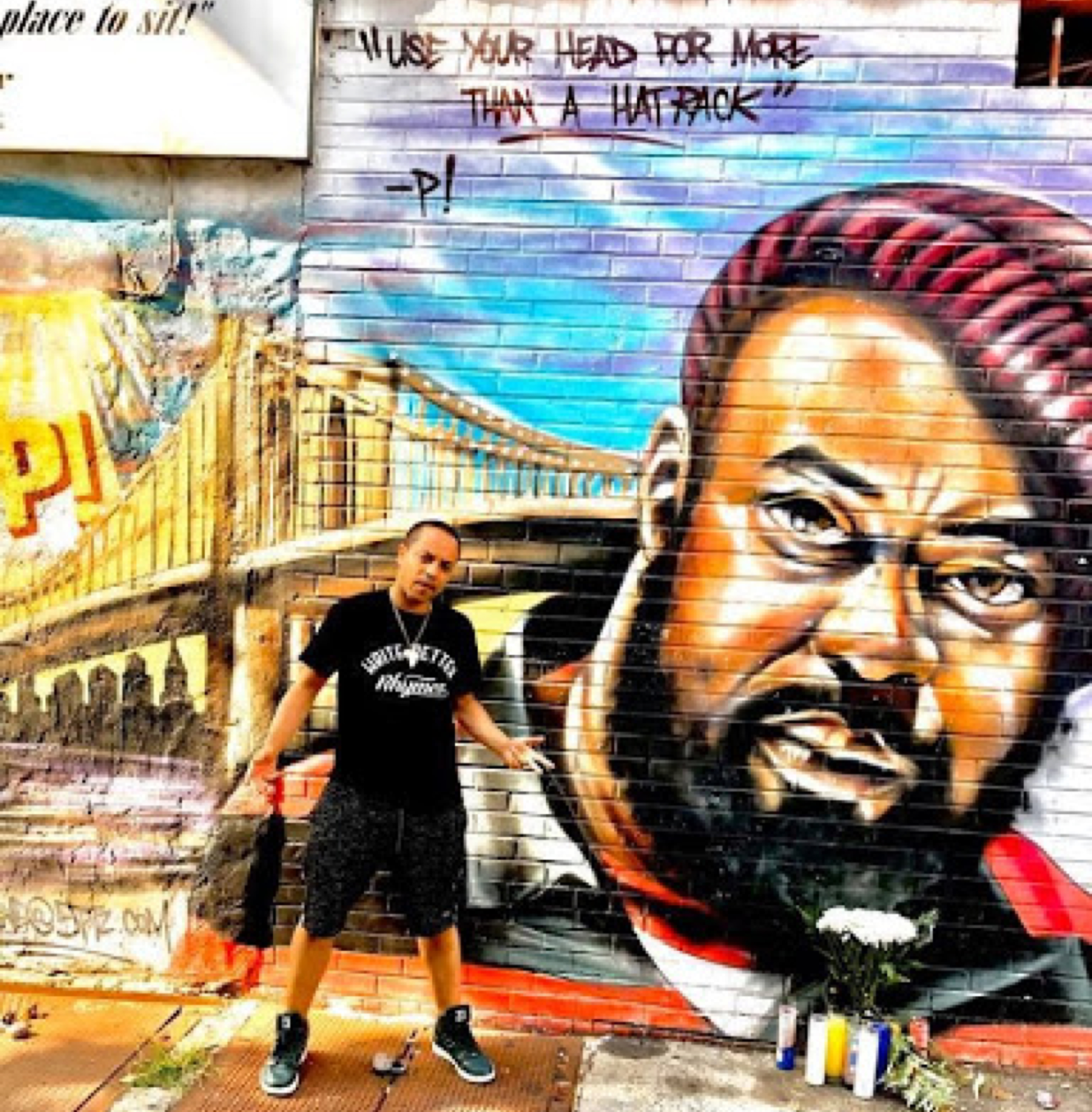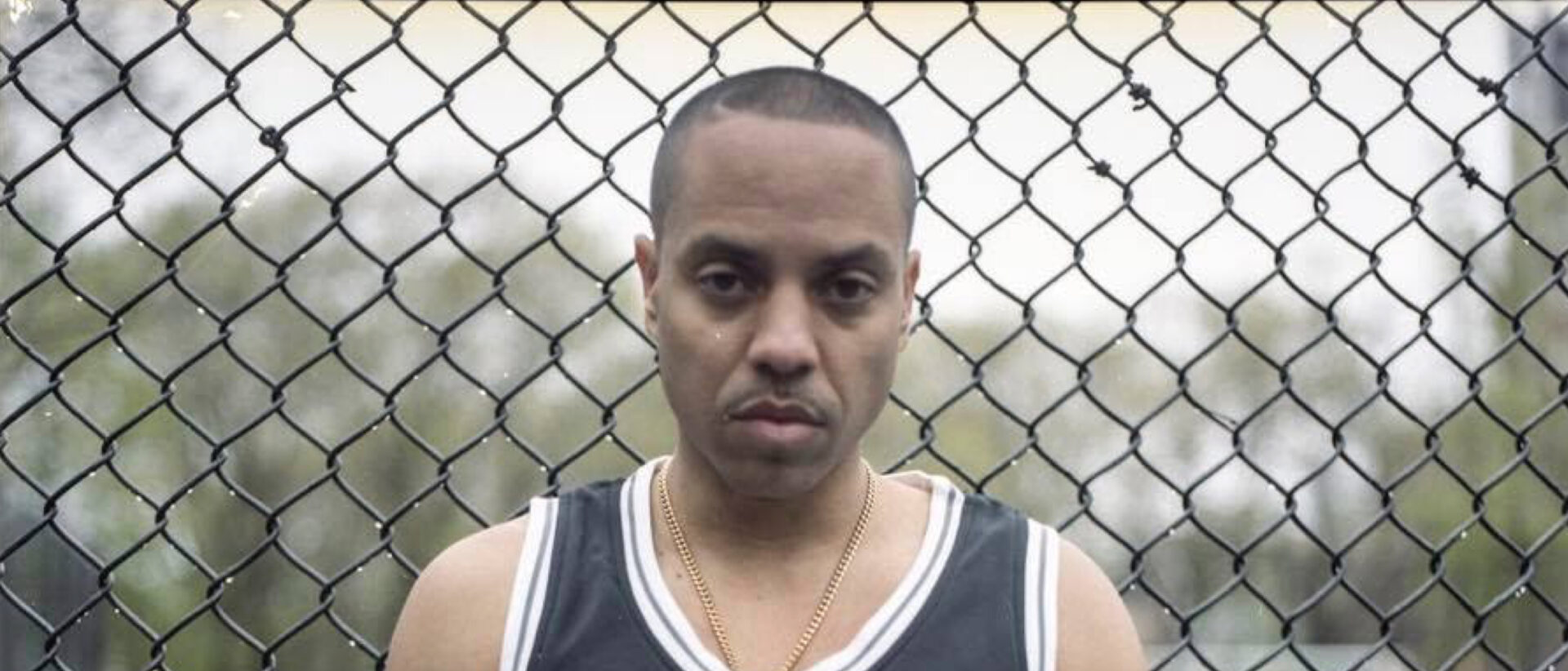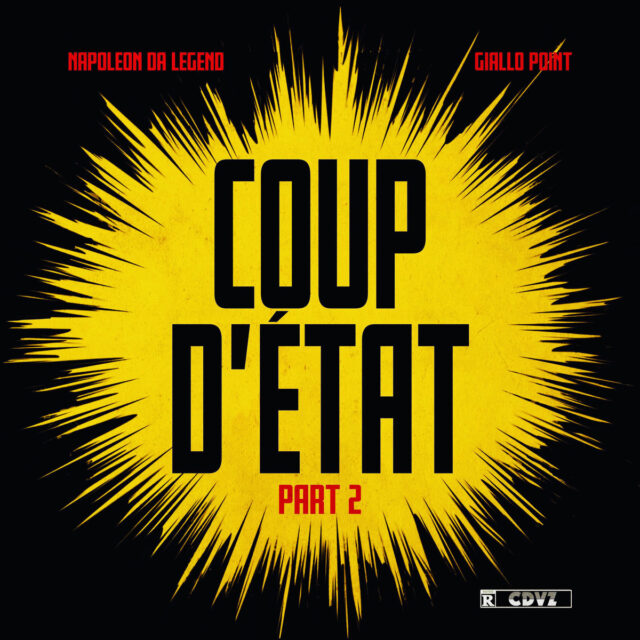Napoleon Da Legend Interview: “Hip-Hop needs more balance between good and bad”.
Napoleon Da Legend told us about his intriguing story and career: from his Afro-French origins to being a dope double-language MC in Brooklyn, NY, with positive messages and a great passion for Manga. Tune in as NDL, also, anticipated a collaborative project with a legendary French rapper.
Thank you bro for letting us ask you some questions, as we are fans of your music and really intrigued by your story… So Let’s start asking you about your mixed and interesting background: in fact if we are not wrong, you were born in Paris from Comorian parents ( Comoros are a wonderful african archipelago ) , then you flew to the United States, that’s correct?
Can you tell us something more about your past and when and why you or your parents decided to fly to the United States?
es that’s true. Then, my father had an opportunity to work in the United States and went for a few months, before sending for us to come meet him there. The United States meant a promise for better life for my family. There are very few Comorians in America at the time. The allure of America was ever bigger than today at the time. Me and my mother took a chance
Are you still strongly tied to your origins now and how often you return to France or Comoros?
I feel strongly tied to my origins. I grew up in a Comorian household culturally. I went back there a few times when I was younger. Comoros is a rather small place and the Comorians had a strong sense of pride. I haven’t been back to Comoros in over 10 year. However, I’ve been to France pretty often pre-covid for shows and tours, especially in the last 4 years.
I have a unique background and life experience and knowing where I came from keeps me anchored and helps me not to lose my head amidst the madness. I’m from a third world country, I benefit from the luxuries that come from living in one of the richest countries in the world as “normal” as they appear to me by now. It informs and motivates my “moves” and my music.
Once you were in the States, how has your personal story evolved? And when and how have you initially approached the Hip Hop culture? Did you also play basketball, right?
Relative to what I was saying earlier, I grew up like a regular kid, going to school. I played sports. Even at a young age I felt lucky and privileged to be living in America. I would feel how folks overseas would envy my position. I was living at the place they would see in the movies. Hip-Hop was what I would hear on the radio, blaring in the cars that passed by. My father’s record collection consists mainly of Soul, R&B, Reggae and African music.
When I started seeing Hip-Hop videos on TV, it then clicked that it was a culture, it was all around me. We wore the clothes a certain way, I learned English mainly by listening to Hip-Hop thus where I got my New York accent while growing up in DC.
The music was everything to me at the time, it was a refuge for me. The energy was new and yet felt familiar. I was loving basketball too. Hip-Hop and basketball went hand and hand to me. Growing up with dudes like Stefon Marbury and Allen Iverson, everything about basketball was Hip-Hop. I loved it before I understood where it came from and that it was something I would be living years later. I guess I was living it before I knew what it was.
When and why did you realize Hip Hop music was your path? In your opinion what were your first real major projects?
I’m not sure when I realized it was my path. It’s not a simple thing. Life is tumultuous, the main thing you think about is how to survive, how am I gonna make money to live, sustain myself, my loved ones and do what I want to do. I had to figure that part out. I was always on the hustle, whether rapping, making moves on the street or getting temporary work here and there. I guess you can say I had a multi-pronged approach.
I wasn’t always focused, I knew my passion was making music, I had no doubts about that. I knew there were risks doing certain things in the streets and that it couldn’t be a long term plan. I also knew that I wasn’t happy taking hourly or salaried jobs. I think subconsciously or super-consciously I knew Hip-Hop was my path since I kept being drawn to it, lyrics and song ideas would keep coming to my head even when I would stop or take breaks.
When I confidently knew it was my path was when I moved to Brooklyn with the primary goal of pursuing it as a career. I took the step to move before I knew how I was gonna do it. I got to Brooklyn and figured it out. My first major project was my first album “Awakening”.
So in 2013 you released the “Awakening” LP with features from legends as Raekwon and Sean Price (R.I.P), how did you get in touch with these legends?

Napoleon Da Legend in front of a Sean Price dedicated mural in Brooklyn, NY
A friend of mine got in touch with Raekwon when he met his brother Don P. As for Sean Price it happened soon after I moved to Brooklyn, the underground circle made it easy to be in proximity with many up and comers and legends. I always knew inside my heart that all I needed was an opportunity. I took mine as they presented themselves to me
Your musical output seems to have really increased in the last 3-4 years…why?
I think my knowledge of the game, my craft and focus level really started where it needed to be for me around 2016. I was in Brooklyn. I had gotten a local buzz. However, I realized that longevity relied on “records” and “projects” that would be remembered and impact people. I slowed down on performing everywhere and started recording “Steal This Mixtape”. This got me in a zone, which I have been riding ever since. I started enjoying putting projects together, instead of it seeming like a tall mountain, it got easier and more enjoyable.
I started having fun creating and talking about my life. It was therapy as well, I didn’t realize how much I was holding in until I started allowing my feelings and experiences pour out.
2020 was a super productive year, too, indeed, you released at least 5 projects: in our opinion, your most important project of the year could be “Charles De Gaulle”, a double language project, where you showed versatility and skills both in English and French language.. Why did you choose to make such a double language album? And what’s the meaning behind the title referring to the notorious french ex-president?
As mentioned earlier, I was going to France a lot more in the last 4 years. It made me want to get back into speaking and communicating in French. Also get back into reading and watching things in French. I did an interview which got over 100,000 views on a Comorian channel in French and I realized that language communicated to people I hadn’t yet reached at the time. I tried writing a song in French and I wrote “De Rien”
I surprised myself as it was fun and not as hard as I would have imagined. I decided to introduce my French songs alongside English songs as though not to fully alienate the fanbase that’s been growing. I was able to promote and market the project in French speaking countries as well as in the US.
Charles de Gaulle is the second name that comes to mind when I think of France or French stuff after Napoleon. When you land in Paris you land at Charles de Gaulle airport. I’m gonna rap in French for the first time for most listeners, so boom “Charles de Gaulle”. It’s etched in history that way
Actually, this year, you also had other really solid projects as “Street Universe”, “The Stuff of Legend” (with Ro Data) , “Chikara” and the last one “Dragonball G”. Which are the ones you have had the more positive feedback? And your favourite one?
All of them got great feedback and sold very well and very fast. 4 vinyl in a year was a first for me and each one is a collector’s item at the moment.
I’m not sure which one has the most positive feedback. It’s hard for me to gauge that, it’s too soon I think. I think time will tell with those and the rest of my catalogue. I don’t rank or think of my projects in that way. They all represent how I felt at a period in time, I record and put them together, then move to the next concept. I let the people judge, that’s more important than how I feel about them.
I think artists trip themselves up if they dwell too much on what people are thinking. I want people to love and enjoy what I do. At the same time, I must be able to enjoy the process of creating and have something to say without too much care for the consequence. It’s a line you have to balance. Hip-Hop and music is freedom for me
To name a few of your other past projects from the last years that really caught our attention, for example, there were the two “Coupe D’Etat” from 2018-2019 produced by the british beatmaker Giallo Point…you also renovated the collaboration with him releasing “Street Universe” this year… How did you link up and how those albums were born?
We linked up online out of mutual love and respect for each other’s work and hustle. We just recorded a tsunami of records in a few month’s time, which more and less encompass all those three projects. We were just picking and choosing which songs to go on which project. For “Street Universe” we decided to break out of the “Coup d’Etat” concept and give people a fresh look. It was well received
https://youtu.be/X3OEqiOIm9Q
What are the other albums that you consider the most important of your career and you would suggest to someone who has never heard your music? And Why?
I would suggest people listen to the “Steal This Mixtape” series because of the different facets of my life I speak on and the concepts. “Tupacrypha” was a mixtape narrated by Tupac (RIP), which I go back to a lot. Other than that I would say “Bronze Saints”, which was the first project I fully self-produced
In your albums concept and lyrics you often refer to the Japanese and the Manga Anime culture…Why ? Where does this passion come from? On the contrary, in which way do you feel your afro-french roots influenced your music?
I love manga and Japanese anime since young because of the style, the stories and the music. It’s similar to people being inspired by gangster movies. Why repeat something that’s been done a million times? All of it is stylized fiction. The creators of Manga had an incredible work ethic and it’s a tough grind, it correlates a lot to being an artist and MC.
As for my African roots, I released two projects “Afrostreet” and “Afrostreet 2” which explore my influences. I had also done 4 “African Drum” songs in my “Steal This Mixtape” series.
https://youtu.be/iyGp6RqGtAQ
Another distinctive trait of your music is that you often try to spread positive messages, but, besides music, we read somewhere else, you are also actively involved in some social programs for real…Can you tell us more about this side of you?
The music reflects who I am and what I stand for. I have a deep love for humanity, I want to see people happy and doing good. So I do my best to put some positive into my sound. Negativity sells, but for me it’s not all about a “sale”, it’s about what I can give to someone. I do many talks to people and the youth here and abroad. Before Covid, I was doing Hip-Hop workshops in schools in Brooklyn, Bronx and Riker’s island jail. It’s something I enjoy doing because it keeps me connected to the youth and once again it’s part of giving. You only truly receive when you give
I don’t like how it’s “normal’ for Hip-Hop to be associated with non-positive vibes, because it means that corporate “marketing” won the narrative. We have to get out that bubble. Balance is of the good and the bad is more “real” than the opposite. If you only recording negative records, it’s a very high chance you promoting a fake image. Hip-Hop for me has to be “real”.
https://youtu.be/L83zinVw5AM
Ok, after a dope 2020 from a musical standpoint, what plans do you have for the next future?
I have a lot of music I’m working on. Me and producer Amerigo Gazaway are finishing up an album together. I also have several project produced by Akhenaton of the group IAM that I am working on. They will drop when the time is right.









Dope interview.Looking forward to more music from Nepoleon Da Legend.He is an amazing talent.